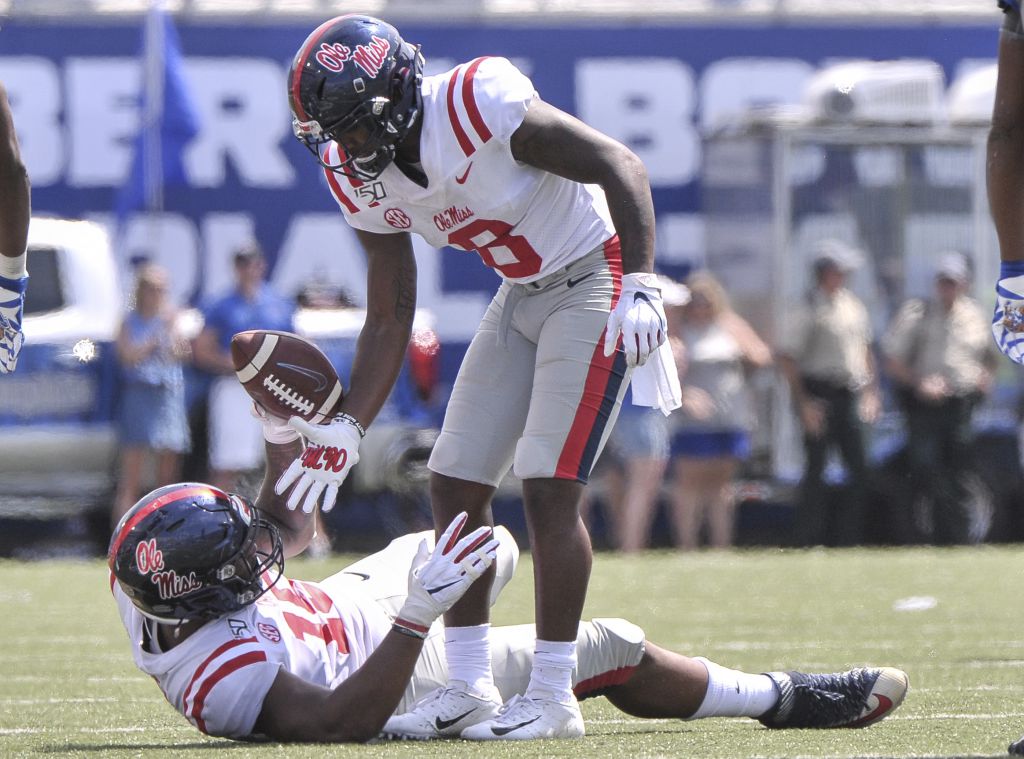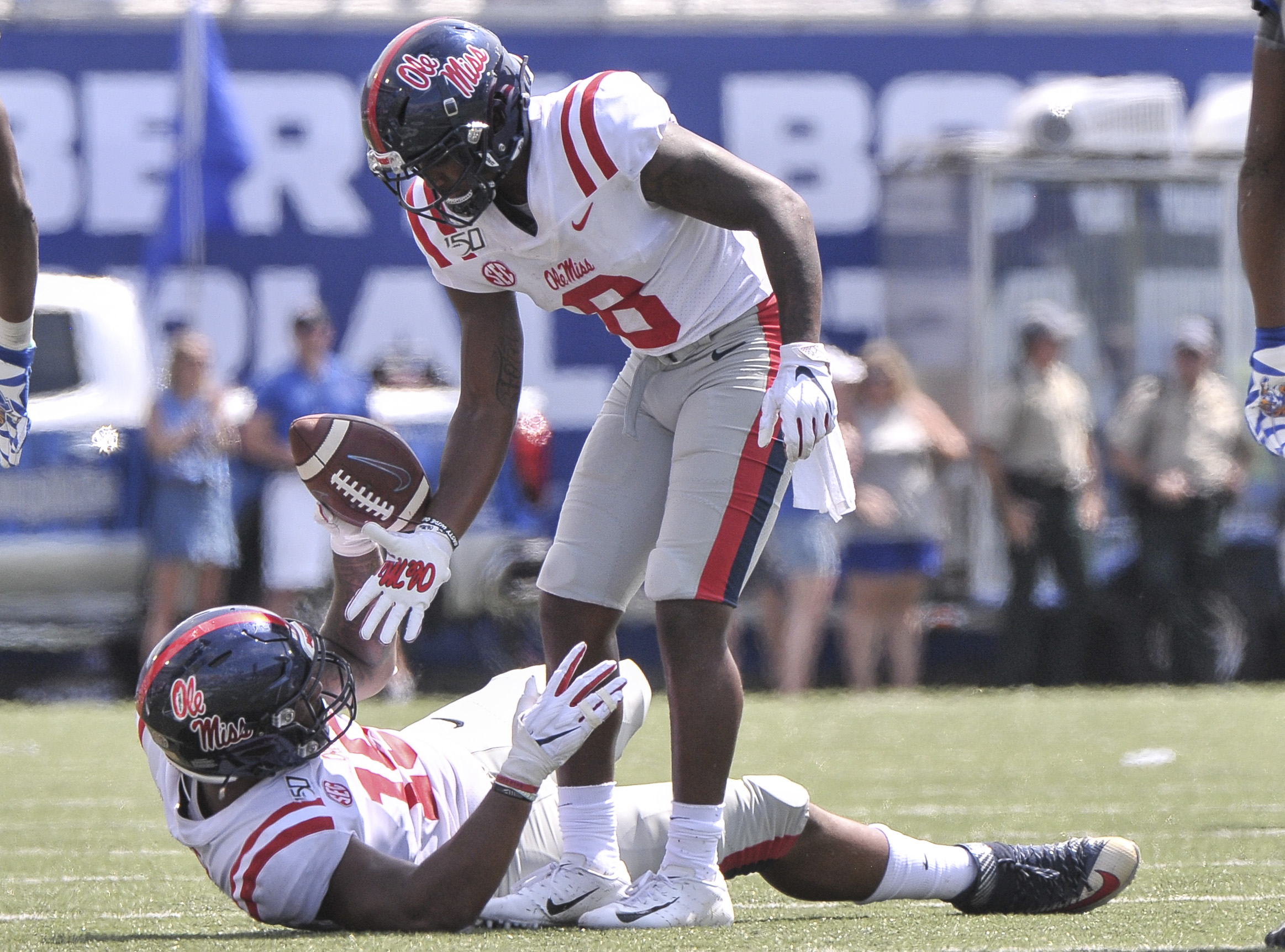
On Dec. 1, 2017, the University of Mississippi had its toughest loss to date – off the gridiron.
That day saw the NCAA hit the university with a laundry bin’s amount of penalties – 15 Level-I infractions total. They included three years of probation, postseason bans for 2017 (self-imposed) and 2018, recruiting sanctions, and perhaps most devastatingly, vacating 33 wins from 2010 to 2016 that featured ineligible student-athletes.
Now as Ole Miss kicked off its 2019 season on Aug. 31 versus Memphis, while it has been a slow recovery process, it’s starting to pay off.
In the NCAA’s annual financial database report assessing college athletic departments’ revenue, the Rebels raked in $110,912,617 – a record number for the program.
While the Rebels rank 30th in total revenue and above SEC foes like Missouri (No. 31) and Mississippi State (No. 33), it still lags behind the conference’s biggest names. Nine SEC schools finished in the top 25 in revenue – led by Texas A&M’s $212,399,426, second-highest in the country.
“We’re going to continue to keep working, trying to find new revenue streams and certainly try to find ways to be more efficient as we move forward,” said Ole Miss interim athletic director Keith Carter. “But we’re in a good place, we’re in a healthy place, and excited about where we can go from here.”
According to Carter, each of the 14 Southeastern Conference member schools receives a portion of its annual revenue – typically in the range of $30 to $40 million. Due to Ole Miss’ NCAA infractions, it’s receiving a smaller piece of the pie – but still spending like a heavyweight.
Carter says that the Rebels have spent approximately $200 million on facility renovations the past six or seven years. The program has also spent upwards of $110 million on athletic scholarships for its nearly 400 student-athletes. As a result, the Rebels accrued $116,812,268 in total expenses during 2017-2018 – a net loss of $5,899,651, the most amongst the top-40 athletic departments.
Carter says that this summer, the university has been outspoken about budget cuts – the first time it has been transparent about this. The school slashed 8.5% of the athletic department’s budget reducing its expenses while
“Every year as we go through our budgeting process, we’re going to look at our expenses and see where we can trim some fat and be more efficient,” said Carter. “I think that’s the fiscally responsible thing to do – that’s something that we’ll continue to look at and try to look at the opportunities in the future when it’s pertinent to do that again.”
READ MORE: Rutgers Draws From Fyre Festival to Celebrate Football Milestone
Outside of football, Carter sees other university sports garnering more attention this year. Basketball ticket sales for 2018-2019 are already ahead of last year’s marks. Baseball tickets are expected to sell-out again like they did last season. While Carter is happy about the direction these sports are heading in, he’s aware that football remains king – but with some challenging times ahead.
Heading into its season opener at Memphis, he estimated that 40,000 student tickets were sold this year for Ole Miss football – a 15% decline year-over-year. Carter knows that the Rebels’ rocky history of late, coupled with a 5-7 performance in 2018, have kept fans from visiting Vaught-Hemingway Stadium. He also knows that Ole Miss isn’t the only school affected by attendance issues.
According to the NCAA’s annual football attendance report, SEC football was the most-attended conference with an average home attendance of 73,994. However, it was lower than 2017’s average of 75,074 – a 1.4% drop year-over-year – and the lowest since 2004.
With college football attendance suffering as a whole, some speculate a grim future is approaching the sport. For Carter, he believes that colleges and universities have time to figure out a solution to this predicament. Although he knows that that’s easier said than done, he knows it’s possible – but will require new, unique problem-solving.
READ MORE: UAB Emphasizing Fan Experience To Keep Football Alive
“I don’t think there’s ever going to be a substitute for live sports and especially live college football on campus,” said Carter. “The campus that our donors and fans and alums love so much – I think people have a love for this place. I think they want to be here.”
“I don’t think that we’re heading down a road where nobody comes to games and everybody watches on TV,” said Carter. “I think there’s a great happy medium there – we just gotta be creative and thoughtful about the way we’re selling and giving ticket options to people as we move forward.”






![[Subscription Customers Only] Jun 15, 2025; Seattle, Washington, USA; Botafogo owner John Textor inside the stadium before the match during a group stage match of the 2025 FIFA Club World Cup at Lumen Field.](https://frontofficesports.com/wp-content/uploads/2026/02/USATSI_26465842_168416386_lowres-scaled.jpg?quality=100&w=1024)
![[Subscription Customers Only] Jul 13, 2025; East Rutherford, New Jersey, USA; Chelsea FC midfielder Cole Palmer (10) celebrates winning the final of the 2025 FIFA Club World Cup at MetLife Stadium](https://frontofficesports.com/wp-content/uploads/2026/02/USATSI_26636703-scaled-e1770932227605.jpg?quality=100&w=1024)








